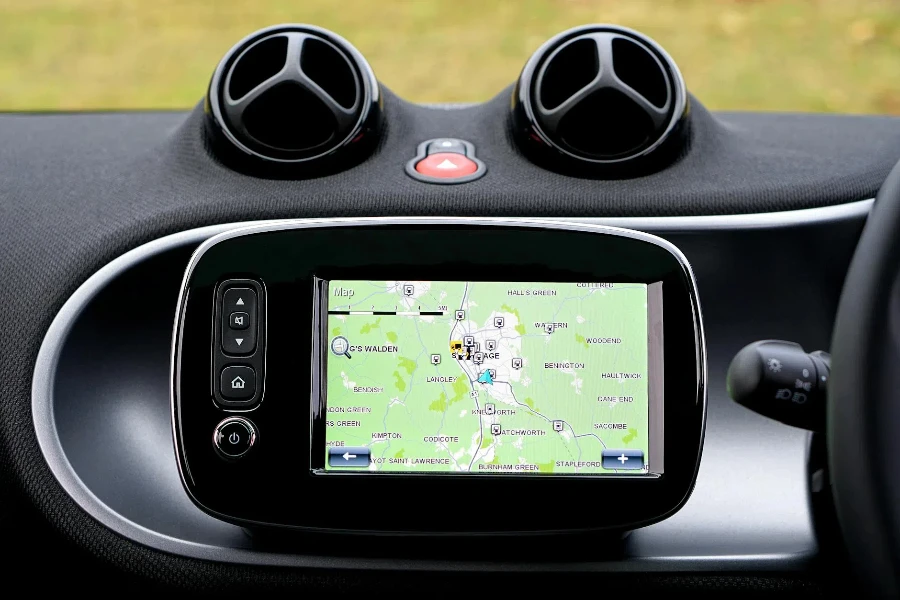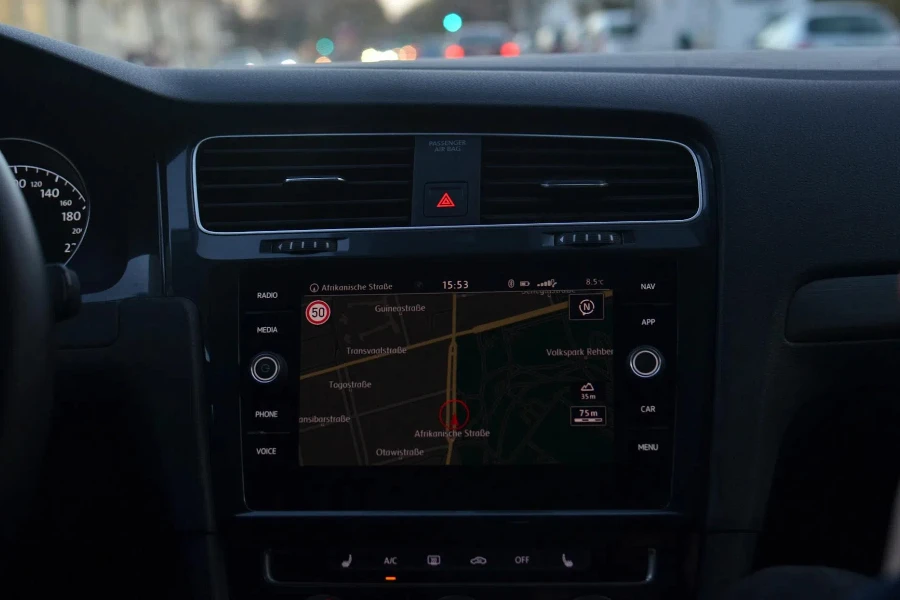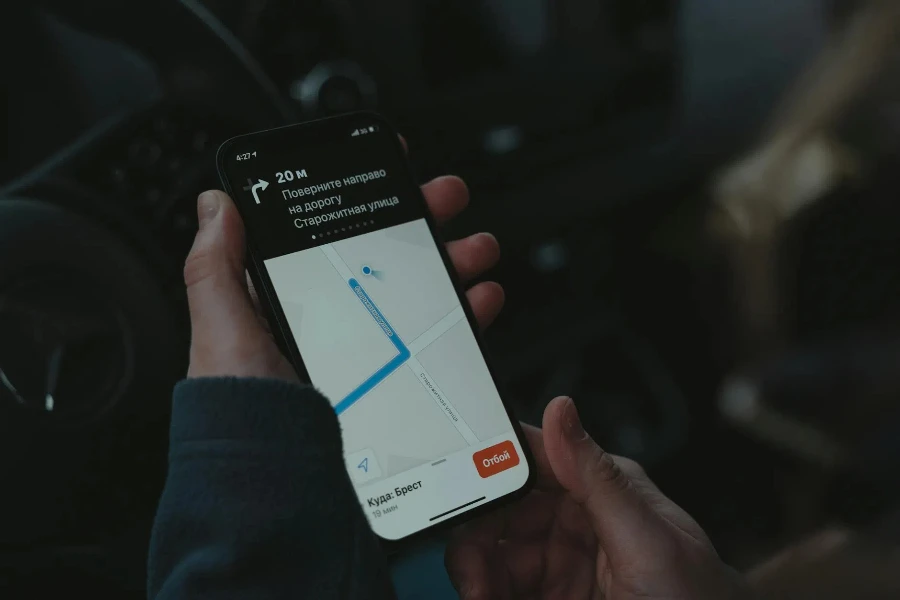In an era where technology seamlessly integrates into our daily lives, GPS trackers have emerged as a cornerstone for enhancing vehicle security and operational efficiency. These compact devices offer a wealth of benefits, from real-time location tracking to monitoring driving behaviors. This article delves into the essential aspects of GPS trackers, shedding light on how they work, their benefits, types available, installation insights, and the future of tracking technology. Whether you’re a vehicle owner looking to bolster security or a fleet manager aiming to optimize operations, understanding the nuances of GPS trackers is invaluable.
Table of Contents:
– How GPS trackers work
– The undeniable benefits of using a GPS tracker
– Types of GPS trackers available
– Installation insights: Setting up your GPS tracker
– The future of GPS tracking technology
How GPS trackers work

GPS trackers utilize the Global Positioning System (GPS) to determine and track the location of a vehicle or object. The system comprises a network of satellites orbiting the Earth, which send signals to GPS receivers on the ground. These receivers, embedded within GPS trackers, calculate the object’s precise location by analyzing the time it takes for signals from multiple satellites to reach them. This technology not only pinpoints location but also tracks movement, offering users a dynamic view of their vehicle’s whereabouts in real time.
The functionality of GPS trackers extends beyond mere location tracking. Advanced models incorporate features like geofencing, which alerts users when the vehicle enters or exits predefined areas. This capability is particularly beneficial for fleet management, enhancing security and operational efficiency. Furthermore, some GPS trackers are equipped with accelerometers, enabling them to detect sudden movements or impacts, thus offering an added layer of security.
Understanding the technical underpinnings of GPS trackers is crucial for selecting the right device. It’s not just about knowing the location of your vehicle; it’s about accessing a suite of tools designed to improve safety, efficiency, and peace of mind.
The undeniable benefits of using a GPS tracker

The adoption of GPS trackers transcends basic vehicle tracking; it’s an investment in safety, efficiency, and peace of mind. One of the primary benefits is theft prevention and recovery. In the unfortunate event of theft, a GPS tracker significantly increases the chances of recovering the stolen vehicle by providing real-time location data to law enforcement agencies.
For businesses managing fleets, GPS trackers offer invaluable insights into driver behavior, fuel usage, and vehicle health. This data is instrumental in optimizing routes, reducing operational costs, and improving overall fleet efficiency. Moreover, the ability to monitor driving patterns helps in identifying risky behaviors, thereby enhancing the safety of drivers and reducing the likelihood of accidents.
On a personal level, GPS trackers afford vehicle owners a sense of security, knowing they can locate their vehicle at any time. This is particularly reassuring for parents of young drivers, enabling them to monitor their child’s driving habits and ensure their safety on the road.
Types of GPS trackers available

When exploring GPS trackers, it’s essential to understand the different types available to find the one that best suits your needs. Hardwired GPS trackers are directly connected to the vehicle’s power source, offering continuous tracking without the need for battery changes. These devices are typically hidden, reducing the risk of tampering or removal.
Portable GPS trackers, on the other hand, offer flexibility and ease of installation. They are ideal for individuals seeking a temporary tracking solution or the ability to switch the device between vehicles. However, they require regular battery recharging or replacement.
OBD GPS trackers plug into the vehicle’s onboard diagnostics (OBD) port, providing not only location tracking but also data on vehicle health and performance. This type is particularly beneficial for fleet managers looking to monitor vehicle diagnostics in real time.
Selecting the right type of GPS tracker involves weighing factors such as installation requirements, data needs, and vehicle compatibility. Each type offers distinct advantages, making it crucial to assess your specific tracking objectives.
Installation insights: Setting up your GPS tracker

Installing a GPS tracker may seem daunting, but with the right preparation, it can be a straightforward process. Hardwired GPS trackers require a basic understanding of the vehicle’s electrical system and may necessitate professional installation to ensure proper connection and functionality. This type of installation is discreet, minimizing the risk of tampering.
For those opting for portable or OBD GPS trackers, installation is significantly simpler. Portable trackers can be placed in various locations within the vehicle, such as the glove compartment or under seats. OBD trackers, meanwhile, can be easily plugged into the vehicle’s OBD port, typically located under the dashboard.
Regardless of the type, it’s essential to test the GPS tracker after installation to confirm it’s transmitting data accurately. This involves checking the device’s app or web portal to ensure the location and other information are being correctly reported.
The future of GPS tracking technology

As technology advances, the future of GPS tracking looks promising, with innovations aimed at enhancing accuracy, efficiency, and functionality. Developments in satellite technology and signal processing are expected to improve location accuracy, even in challenging environments like urban canyons or dense forests.
The integration of artificial intelligence (AI) and machine learning algorithms is set to revolutionize GPS tracking by offering predictive analytics, personalized alerts, and automated route optimization. These advancements will not only refine the tracking experience but also open new avenues for data analysis and decision-making.
Furthermore, the rise of the Internet of Things (IoT) connectivity is facilitating the development of smart GPS trackers that can communicate with other devices, creating a more interconnected and automated tracking ecosystem. This evolution promises to redefine how we monitor and manage vehicles, enhancing security and efficiency on an unprecedented scale.
Conclusion:
GPS trackers have become indispensable tools for enhancing vehicle security, optimizing fleet operations, and providing peace of mind to vehicle owners. Understanding how these devices work, their benefits, the types available, and installation processes is crucial for leveraging their full potential. As technology evolves, the future of GPS tracking holds exciting possibilities, promising even greater accuracy, efficiency, and interconnectivity. Embracing these advancements will undoubtedly transform our approach to vehicle tracking and management.



